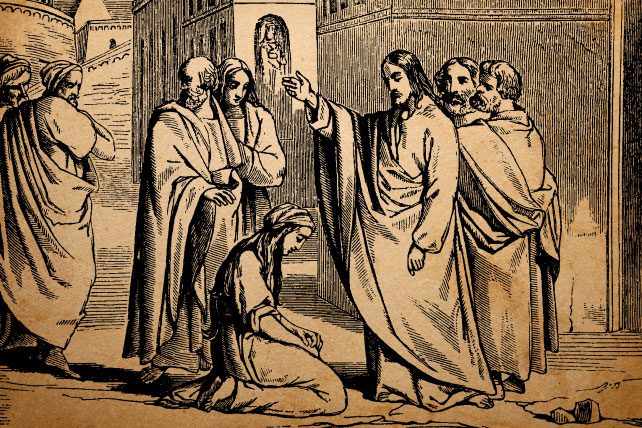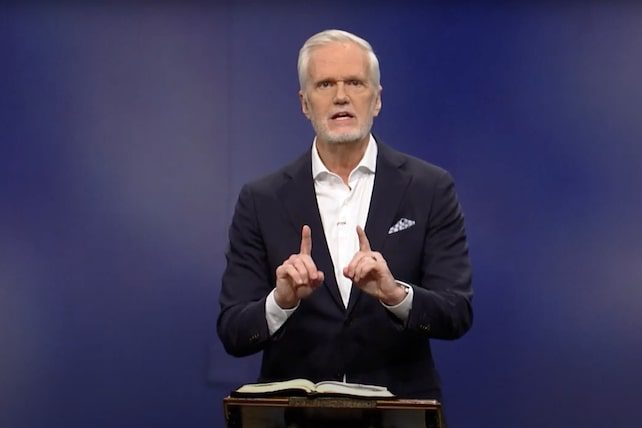Time to read: 4 minutes
In a world filled with countless ministry conferences—each promising inspiration, practical tools, and a chance to recharge—The Alpha Conference stands out. It’s not just another event. It’s a gathering that taps into something deeper, more unified, and more urgent: the call to share the good news of Jesus in a way that actually reaches people where they are.
If you’re a pastor, youth leader, ministry director, volunteer, or just someone with a heart for the Church, here’s why The Alpha Conference is worth your—and your team’s—time.
A Unique DNA: Unity Across Denominations and Faith Traditions
One of the most powerful aspects of The Alpha Conference is its commitment to ecumenical unity. This isn’t a Protestant event. It’s not a Catholic event. It’s a Kingdom event, and that difference matters more than ever in our divided cultural and church landscape.
“I loved, loved, loved the fact that people from different denominations were there and that we united for a common cause. I loved the emphasis on the Holy Spirit.” – TAC 24 Attendee
When leaders from all streams of the Church come together—not to debate doctrine, but to unite in mission—we begin to reflect the Church Jesus prayed for in John 17: “…that they may be one as we are one.” That kind of unity isn’t just a good idea. It’s powerful. And it’s rare. But at Alpha, it’s the heartbeat of everything.
It’s Evangelism-Focused and Spirit-Led
While many conferences focus on church growth strategies, leadership development, or discipleship systems (and rightly so), The Alpha Conference keeps evangelism front and center. It’s about the lost. It’s about the searching. It’s about the people who won’t come to your church—unless someone invites them into a safe, honest, Spirit-filled conversation first.
And that’s what Alpha does best. It trains and equips ordinary people to invite others into conversations about Jesus that are real, respectful, and relational.
“I took the Alpha team from our church to the conference this year. They have never been to one. Their excitement and joy was truly inspirational for me to see.” – TAC 24 Attendee
Alpha doesn’t rely on slick presentations or heavy-handed pitches. It creates space for the Holy Spirit to move through conversation, hospitality, and community. At the conference, you’ll hear story after story of lives changed—not by perfect theology or polished sermons—but by the simple invitation to “come and see.”
A Place for You and Your Team To Catch the Vision
Too often, we attend conferences alone and return home trying to transfer the fire we felt to a team that wasn’t there. The Alpha Conference is built for teams. Whether you bring your Alpha group leaders, youth team, small group volunteers, or entire staff, it’s designed to spark shared vision, renewed commitment, and spiritual refreshment for everyone.
“Making connections with other Alpha leaders—new and experienced—was a hopeful and exciting experience.” – TAC 24 Attendee
One of the most common responses from past attendees is how impactful it was for their entire team to attend together. The conversations that happen over coffee, the bonding that forms through shared worship, and the clarity that emerges from hearing the same vision—it transforms how your church does ministry together.
More Than a Conference: It’s a Catalyst
We all know the conference high can wear off quickly. But The Alpha Conference is different. Because it’s not about hype—it’s about mission. Attendees leave with real, practical tools and a sense of urgency for the Gospel that doesn’t fade.
You’ll gain:
- Training in leading Alpha in various contexts (youth, prisons, online, urban, and more)
- Insights into hospitality, prayer ministry, and Holy Spirit weekends
- Vision casting for evangelism in a post-Christian culture
- Encouragement from stories of transformation across the country
- A sense of belonging in a global network of people passionate about Jesus
What You Can Expect at TAC 2025
📍Location: Just outside Nashville, Tennessee
🗓️ Dates: July 23–24, 2025
👥 Attendees: Pastors, youth leaders, Alpha hosts, volunteers, seekers, and students from across the nation
🎶 Worship: Passionate and Spirit-led worship led by diverse teams
🎤 Speakers: Thoughtful, mission-minded voices from across traditions
🧠 Workshops: Practical and prayerful training for every Alpha context
💥 Students Welcome: With special student pricing, it’s easy to bring your students or young adult leaders
Who Should Come?
- Churches already running Alpha—but ready to go deeper
- Churches that have never run Alpha—but feel drawn to evangelism
- Leaders curious about creating more space for the Holy Spirit
- Teams looking to unite around a shared mission
- Anyone longing to be part of something bigger than their own context
Real Stories. Real Impact.
There’s something contagious about being in a room full of people who really believe Jesus is still changing lives—and who are actively seeing it happen.
✅ You’ll meet pastors whose Alpha groups have become the front door of their church.
✅ You’ll meet students who encountered the Holy Spirit for the first time at Alpha.
✅ You’ll meet volunteers who stepped out in faith—and saw their co-workers find Christ.
✅ You’ll meet people just like you—tired, hopeful, ready for more.
“Their excitement and joy was truly inspirational for me to see.” – TAC24 Attendee
Final Word to Ministry Leaders
If your church is feeling stuck, if your leaders are tired, if your evangelism feels more theoretical than personal—it might be time to shake things up. The Alpha Conference is more than inspiration. It’s an infusion of hope, unity, and purpose that you can carry home with you.
Whether you’re a seasoned pastor, a burnt-out youth ministry leader, or a curious volunteer, TAC 2025 offers a place for you to breathe again, believe again, and build again.
👉 Register Now for TAC 2025























 If you’ve ever encountered seasons where you longed to rediscover and cultivate joy in your life and ministry, then you’re going to enjoy today’s conversation. In this week’s conversation on FrontStage BackStage, host Jason Daye is joined by Alastair Sterne. Alastair is the founding pastor of St. Peter’s Fireside in Vancouver and currently serves as an associate pastor at Coastline Church in Victoria. His most recent book is titled “Longing for Joy.” Together, Alastair and Jason discuss some of the beautiful ways that God shows up in challenging seasons when we’re experiencing hopelessness, despair, and uncertainty. Alastair shares from his own journey some of the surprises that God brought his way and some of the practices that have helped him not only to experience joy but also to share joy with those around him.
If you’ve ever encountered seasons where you longed to rediscover and cultivate joy in your life and ministry, then you’re going to enjoy today’s conversation. In this week’s conversation on FrontStage BackStage, host Jason Daye is joined by Alastair Sterne. Alastair is the founding pastor of St. Peter’s Fireside in Vancouver and currently serves as an associate pastor at Coastline Church in Victoria. His most recent book is titled “Longing for Joy.” Together, Alastair and Jason discuss some of the beautiful ways that God shows up in challenging seasons when we’re experiencing hopelessness, despair, and uncertainty. Alastair shares from his own journey some of the surprises that God brought his way and some of the practices that have helped him not only to experience joy but also to share joy with those around him.






